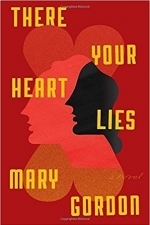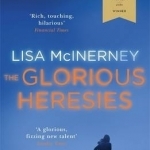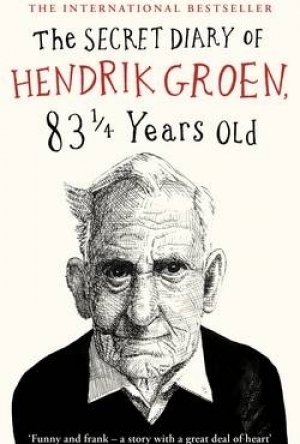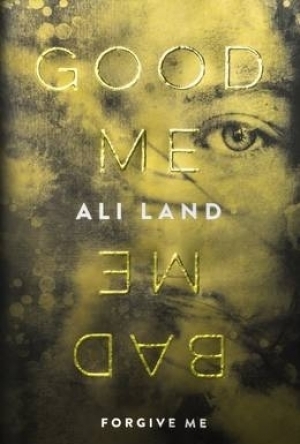
There Your Heart Lies
Book
From the award-winning novelist Mary Gordon, here is a book whose twentieth-century wisdom can help...
literary fiction

Prague Pictures: Portraits of a City
Book
The fourth book in Bloomsbury's Writer and the City series. Prague is the magic capital of Europe....

The Complete Short Stories: Volume One: Volume one
Book
The Complete Short Stories of Roald Dahl in the first of two unsettling and sinister volumes. 'They...

The Glorious Heresies
Book
SHORTLISTED FOR THE BAILEYS' WOMEN'S PRIZE FOR FICTION 2016 SHORTLISTED FOR THE DESMOND ELLIOT PRIZE...

Eddie's Bastard
Book
In this rich, deeply resonant literary debut, twenty-eight-year-old William Kowalski explores the...
fiction literary fiction contemporary American
Movie Metropolis (309 KP) rated Sausage Party (2016) in Movies
Jun 11, 2019
Of course, that’s not always a bad thing, there have been countless weird and wacky films over the years that have gone on to become cult classics – look at Kick-Ass or even Pulp Fiction for examples of that. But for every Pulp Fiction there’s a Sharknado. So is Sausage Party good weird or as stale as a month-old bagel?
From the mind of Seth Rogen, Sausage Party is a strictly adults only animation that combines hugely offensive language and racial stereotypes with surprisingly meaningful religious undertones. And do you know what? It’s a breath of fresh air.
Life is good for all the food items that occupy the shelves at the local supermarket. Frank (Seth Rogen) the sausage, Brenda (Kristen Wiig) the hot dog bun, Teresa Taco and Sammy Bagel Jr. (Edward Norton) can’t wait to go home with a happy customer. Soon, their world comes crashing down as poor Frank learns the horrifying truth that he will eventually become a meal. After warning his pals about their similar fate, the panicked perishables devise a plan to escape from their human enemies.
Directors Conrad Vernon and Greg Tiernan take Rogen’s intriguing premise and inject a warmly familiar animation style, distancing itself just enough to make any comparisons simply inconceivable. Sausage Party is like nothing you will have ever seen.
The voice-acting is great too. Rogen plays his usual film staple – in sausage form – with the spicy Salma Hayek outdoing everyone else as a lustful taco. Kristen Wiig, Bill Hader, Michael Cera and Jonah Hill also lend their familiar voices to a hot-dog bun, a bottle of spirit and two other frankfurters respectively.
Elsewhere, the comedy, for the most part, hits the spot. As dreadful as it sounds, the racial stereotyping works incredibly well in food form. British tea, Mexican taco shells and German sauerkraut will have you rolling about the aisles with their outrageous vulgarity, but everyone needs to release their inner teenager once in a while.
Unfortunately, the films standout sequence has already been shown in the trailer – a side-splitting food-eye view of a normal kitchen, before every edible item is butchered; that poor Irish potato didn’t stand a chance. This is a real shame as the rest of the film doesn’t quite match up to the standard of that scene.
Nevertheless, there’ll be chuckles throughout as numerous celebrities are parodied in food form. One in particular, immortalised in chewing gum, is incredibly well thought out.
And that’s where Sausage Party succeeds the most. Underneath the polished animation and crude humour, this film is actually kind of clever. It tackles religion, war, race, sexuality and food waste very well indeed and that’s something the genre doesn’t ask for. It’s just unfortunate that it’s not quite as funny as the trailer would have you believe.
https://moviemetropolis.net/2016/09/03/utterly-ridiculous-sausage-party-review/

The Secret Diary of Hendrik Groen, 83 Years Old
Hendrik Groen and Hester Velmans
Book
** THE INTERNATIONAL PHENOMENON ** 'There are many laughs in this book but it's so much more than...

Good Me, Bad Me
Book
ONE OF THE MOST EXTRAORDINARY, CONTROVERSIAL AND EXPLOSIVE DEBUTS OF 2017, Good Me Bad Me is for...
Hazel (1853 KP) rated The Joyce Girl in Books
Dec 14, 2018
Winner of the Impress Prize for New Writers 2015, Annabel Abbs creates a fantastic work of historical fiction based upon the life of Lucia Joyce. Although the titular character may be unheard of within the general public, her father will be known amongst the majority of readers. James Joyce, the eccentric author of<i> Ulysses</i> and <i>Finnegan’s Wake</i>, travelled around Europe with his family until settling in Avant-garde Paris, 1928. His daughter, Lucia, an ambitious, talented dancer describes the unconventional life as a child of Mr. Joyce, its ups and downs, and inevitable ruinous breakdown.
<i>The Joyce Girl</i> begins in Küsnacht, Zurich where Lucia is receiving treatment from Dr. Carl Jung – another well-known name; this novel is full of them. Struggling to come to terms with her current mental ill health and supposed repressed memories, Jung encourages Lucia to write her memoirs in order to learn of the events that led to this current predicament. Starting from 1928, aged 21, Lucia describes her life to Jung and the reader in brutally honest detail.
The unusual Irish family went through various successes and traumas in the intervening years, creating a humorous and emotional story. Lucia’s brother, Giorgio, caused the family enough problems without adding in the devastating heartache Lucia suffers from men who do not reciprocate her love. One of these lovers is the famous Samuel Beckett (<i>Waiting for Godot</i>, 1952), the first man Lucia falls for. It is fascinating to learn of the multiple connections these notable names had with each other. Although in retrospect it makes sense that the literary and artistic crowds would stick together.
From Lucia’s memoirs Jung formulates that the Joyce parents were extremely controlling, not giving Lucia the opportunity to live her own life – particularly within her dancing career. However, Jung still maintains that Lucia experienced emotional trauma and is insistent on retrieving those memories. What he eventually discovers will shock and possibly sicken the reader.
Through enormous amount of research, Annabel Abbs has put together a likely account of the Joyce family, particularly Lucia’s life. Using existing biographies, original letters and professional opinion, Abbs devises a logical narrative for the unfortunate dancer. Drawing upon knowledge of other literary greats and artists of the era, <i>The Joyce Girl</i> can be easily believed to be a true account, although doubtlessly some scenes must be based upon imagination.
<i>The Joyce Girl</i> will attract historical and romantic novel enthusiasts, providing an enjoyable, thought capturing story, as well as an opportunity to learn. Whether you are aware of James Joyce’s works, or even Lucia herself, <i>The Joyce Girl</i> is bound to capture your attention and draw your mind into the European life during the early 1930s. Although only her debut novel, Annabel Abbs comes highly recommended and it will be interesting to see what direction she has decided to take in her shortly expected second novel.
Heather Cranmer (2721 KP) rated Summer's End in Books
Jun 7, 2018
As a fan of horror, I thought I'd end up loving this book. However, that wasn't the case. It was an okay read, and I use that term loosely.
Lisa Morton is a horror author who knows a vast amount about Halloween, as in she knows where the tradition started and all the variations. When she gets an email from a university professor saying they found a 1,500 year old Celtic manuscript, she's a bit skeptical. However, she decides to visit the professor and see what he has to say. After translating the manuscript, the professor is found dead. Could this be the work of the manuscript that spoke of the Sidh? It's up to Lisa and Conor ó Cuinn, an Irish archaeologist who found the manuscript, to save the world. But will they be in time?
I'm not a fan of the cover at all. I'm not sure if that's supposed to be a Sidh or not. I have no idea. All I know is that the cover never really pulled me in.
As for the title, it makes me think more of a love story than a horror story. Saying that, one of the translations of Samhain is summer's end according to the book, so the title does fit in with the book.
I thought the world building was alright. I really didn't find any flaws with it. The setting is a university office and an apartment, so nothing too exciting. I though the author did a fantastic job of making the Sidh feel real and like this could actually happen. However, the ending lets the world building down. (This next sentence may be slightly spoilerish). We're led to believe that the world will be destroyed if Bal-sab (the god of death) isn't destroyed. Well, I don't want to give it away too much, but yeah, it's very anti-climatic.
The pacing is extremely slow at the beginning. I was considering adding this title to my DNF (did not finish) pile. For whatever reason, I decided to carry on. Luckily, the story did improve and picked up quickly which meant I was able to finish this book.
The plot was interesting enough. It's told from the author's point of view (although this book is a work of fiction), and she even throws in titles of her other books along the way. I did like the whole Celtic/Pagan mythology throughout the book. I also really enjoyed the little footnotes throughout the book. Anyway, the protagonist of the story needs to translate a Celtic manuscript and save the world. While, it was an interesting premise, I felt that it was poorly executed due to too much info dumping, and what I felt was too much self-promotion for the author's other works.
I felt that the characters were just too run of the mill. They weren't written poorly, but they weren't written well either. I felt that maybe some back story for the characters, especially the main character, would've helped me relate to each character, but I just found myself not really caring what happened to them. I just couldn't relate at all, and believe me, I did try, but all the characters felt too monotonous for my liking. I would've liked it if at least one character had some sort of personality instead of feeling like a cardboard cutout.
The dialogue never seemed forced, but it did feel a bit stale. As I've said before, there was way too much info dumping for my liking especially towards the beginning of the book. The info dumping isn't quite so bad once the story progresses though. As for swear words, there are a few, but it's not too bad.
Overall, Summer's End by Lisa Morton is an okay (again, I use this word loosely) story. It was a fantastic idea but poorly executed, I think.
I'm on the fence with whether or not I'd recommend this book. I'd just say to read it yourself and come to a decision especially if you're into Celtic/Pagan mythology. I'd say the age group it would best fit would be those aged 16+.
I'd give Summer's End by Lisa Morton a 2.5 out of 5.
(I received a free ARC print copy through LibraryThing's Early Reviewers for a fair and honest review).

